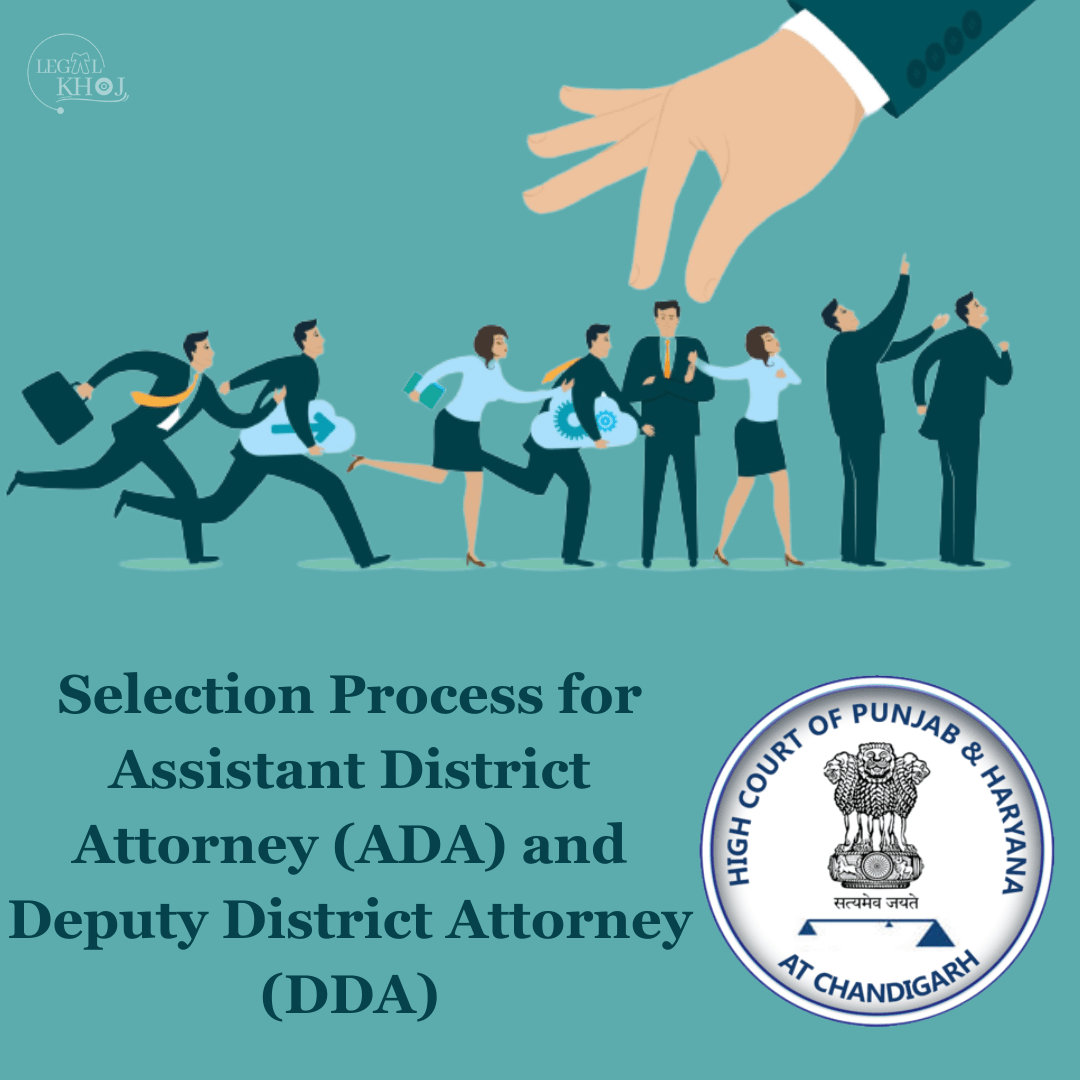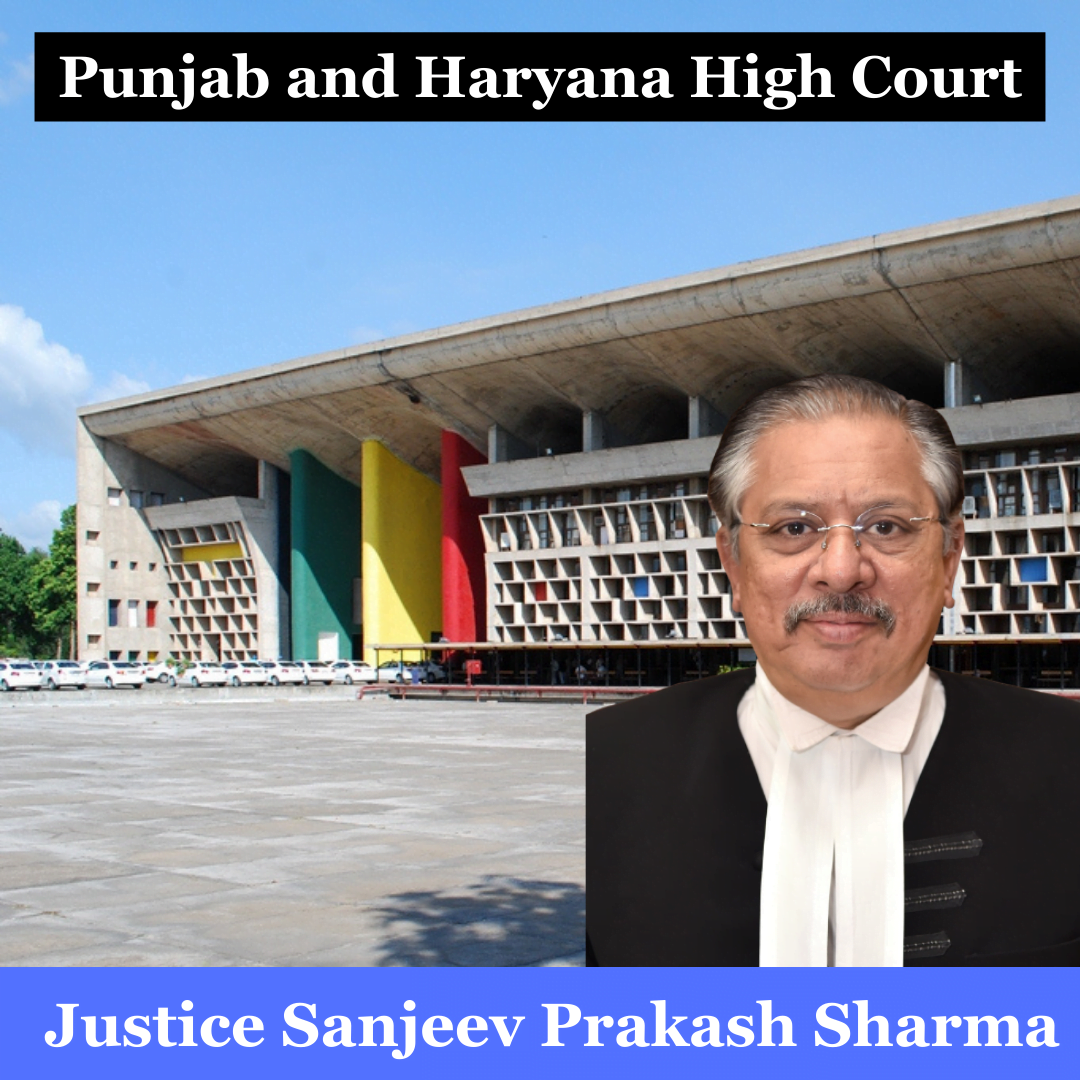In a cluster of petitions lodged against the order dated June 5, 2023, by Punjab and Haryana High Court, a fundamental legal question emerged. The query revolved around whether candidates for the positions of Assistant District Attorney (ADA) and Deputy District Attorney (DDA) could be required to prove their experience and provide six Court orders/interim orders after the selection process had concluded. The Bench, presided by Justice Sanjeev Prakash Sharma, vehemently denounced this demand as ‘deplorable.’ Consequently, the Bench quashed the aforementioned letter, deeming the demand unjustified, illegal, and contrary to established rules.
Background case of Punjab and Haryana High Court
Applicants for the Assistant District Attorney (ADA) and Deputy District Attorney (DDA) positions, responding to the Punjab Public Service Commission’s (PPSC) advertisement dated April 5, 2023, were initially deemed eligible for the selection process. Subsequently, they made it to the merit list, with their names forwarded to the State Government for appointment. Unexpectedly, on June 5, 2023, the State Government issued an order mandating the selected candidates to provide copies of six Court orders/interim orders annually. This requirement aimed at validating their claimed experience by demonstrating their presence in the Punjab and Haryana High Court .
Analysis case of Punjab and Haryana High Court
The Court initiated its examination by scrutinizing the relevant regulations governing the selection procedures. Specifically, it delved into the Punjab Prosecution and Litigation Rules of 2002 (Prosecution Rules 2002) applicable to Deputy District Attorney (DDA) selection and the Punjab Prosecution and Litigation (Group B) Service Rules of 2010 (Prosecution Rules 2010) pertinent to the Assistant District Attorney (ADA) selection process.
In the ADA and DDA selection process Punjab and Haryana High Court
 The Punjab and Haryana High Court reviewed the Punjab Public Service Commission’s (PPSC) advertisement for 119 Assistant District Attorney (ADA) posts and 41 Deputy District Attorney (DDA) posts, which mandated specific certificates from candidates. Notably, the PPSC’s requirements mirrored those outlined in the Prosecution Rules 2002. Petitioners, having successfully passed the December 18, 2022, written examination and submitted all necessary documents, were listed in the final merit list published on March 2, 2023. However, the PPSC later directed these candidates, via a letter dated June 5, 2023, to provide Experience Certificates and six Court orders/interim orders from each year to verify their courtroom attendance.
The Punjab and Haryana High Court reviewed the Punjab Public Service Commission’s (PPSC) advertisement for 119 Assistant District Attorney (ADA) posts and 41 Deputy District Attorney (DDA) posts, which mandated specific certificates from candidates. Notably, the PPSC’s requirements mirrored those outlined in the Prosecution Rules 2002. Petitioners, having successfully passed the December 18, 2022, written examination and submitted all necessary documents, were listed in the final merit list published on March 2, 2023. However, the PPSC later directed these candidates, via a letter dated June 5, 2023, to provide Experience Certificates and six Court orders/interim orders from each year to verify their courtroom attendance.
In the legal proceedings at hand, the Court referred to the case of Tej Prakash Pathak v. Rajasthan High Court (2013) 4 SCC 540, highlighting the Supreme Court’s ongoing deliberations on altering established rules. However, the current case focused on evaluating the legality of a letter dated June 5, 2023.
The Punjab and Haryana High Court began by emphasizing that once a law graduate becomes an enrolled advocate, they are bound by the Advocates Act, which strictly prohibits engaging in other businesses, services, or holding offices of profit. This condition implies that an advocate is primarily committed to practicing law. Referring to Rule 47 of the Bar Council of India Rules 1975, the Punjab and Haryana High Court underlined the restrictions on other employments for legal practitioners.
Drawing from the precedent set by the case of Bar Council of India v. A.K. Balaji (2018) 5 SCC 379, the Punjab and Haryana High Court reiterated the Supreme Court’s ban on the practice of law by foreign law firms or lawyers in India. The Punjab and Haryana High Court further delved into various cases to elucidate the eligibility criteria for appointments in comparison to actual practice at the Bar. It concluded that an advocate, once enrolled with the Bar Council, commences actual practice. A certificate from the relevant Bar Association, Punjab and Haryana High Court , or any judicial/quasi-judicial forum where the advocate practices holds equal validity, rendering further proof of experience unnecessary.
The Punjab and Haryana High Court cautioned that if an advocate, registered with the Bar Council, engages in non-legal businesses or gainful employments instead of practicing law, they risk violating Bar Council Rules. It urged the State to consider amending existing regulations in light of this observation.
Additionally, the Punjab and Haryana High Court referred to the definition of ‘practice of law’ as outlined in the Rules of Legal Education 2008, framed by the Bar Council of India under the Advocates Act, 1961. It also pointed to Article 220 of the Indian Constitution, which restricts permanent judges from practicing law after their appointment.
Regarding the criteria set forth by the State Government, the Punjab and Haryana High Court criticized the narrow definition of ‘practice of law.’ It argued that limiting legal practice to court appearances, specifically requiring at least six interim orders, unfairly restricted advocates’ participation in the selection process for Assistant District Attorneys (ADAs) and Deputy District Attorneys (DDAs). The Punjab and Haryana High Court emphasized that experience in various legal domains, such as arbitration, document registration, appearances before tribunals, and courts, should be considered valid practice, broadening the scope beyond courtroom appearances.
Furthermore, the Punjab and Haryana High Court cited Section 24 of the Criminal Procedure Code, 1973, which presumes that public prosecutors appointed by the State have a minimum of seven years’ legal practice. Thus, the State’s demand for additional certificates or proof of experience was deemed unwarranted and a manifestation of their failure to apply sound judgment. The Punjab and Haryana High Court rejected the State’s authority to reevaluate the suitability of candidates recommended by the Punjab Public Service Commission (PPSC), asserting that such actions would be arbitrary and undermine the merit-based selection process defined in Article 320 of the Constitution.
Concluding its analysis, the Punjab and Haryana High Court deemed the State’s actions as ‘deplorable,’ emphasizing the absence of legal basis for their demands. The Punjab and Haryana High Court criticized the lack of substantiated reasoning behind the State’s stance, deeming it unfounded and not in accordance with established laws or judgments.
The Punjab and Haryana High Court ruled that the State’s demand for selected candidates to submit specific certificates was legally unsustainable, arbitrary, and unjustified. While acknowledging the need for experienced Assistant District Attorneys (ADAs) in effectively representing the State Government in Courts, the Punjab and Haryana High Court criticized the flawed approach taken in the June 5, 2023, letter. It recommended incorporating such conditions through rule amendments or specifying them in the initial advertisements. Consequently, the Punjab and Haryana High Court nullified the aforementioned letter and instructed the State to promptly proceed with appointing ADAs and DDAs within one month.
Must Read:-Chhattisgarh High Court ruled that requests to repay loan









Leave a Reply